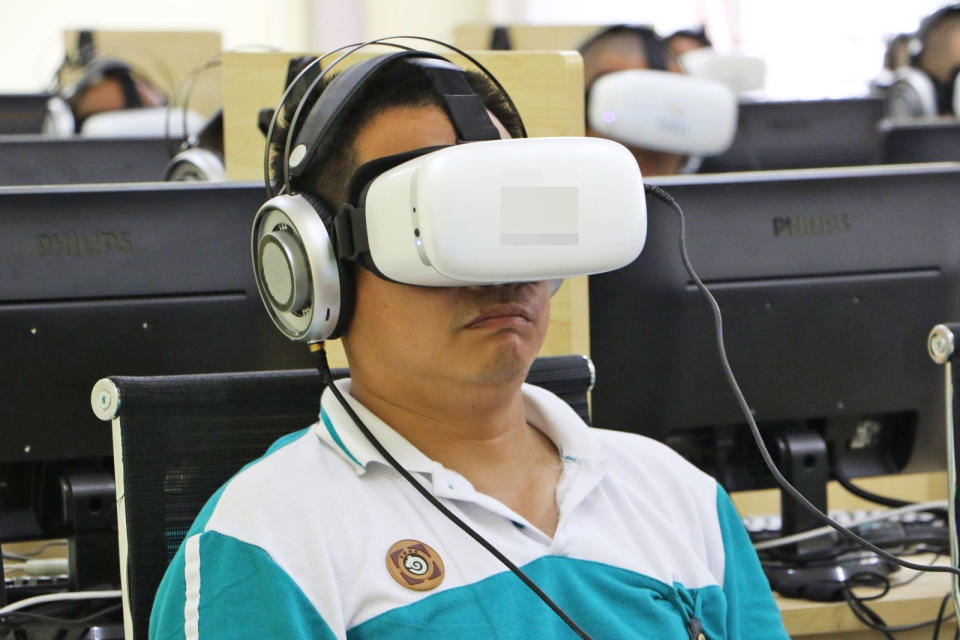China uses VR eye tracking to gauge success of drug rehab
Rehab centers can supposedly tell when addicts are receptive to treatment.
China's rehab centers are no strangers to using technology to treat addiction. The latest approach, however, is rather unusual. Shanghai drug rehab facilities (not pictured here) are trialing a combination of VR, eye tracking and skin sensors to both aid in recovery and gauge its effectiveness. Recovering addicts have to look at images and video illustrating the effects of drugs, and the eye monitoring can help determine their reactions, including whether or not they're paying attention in the first place. Think of it like a (relatively) gentler version of A Clockwork Orange's Ludovico treatment -- patients can't look away from the unpleasant imagery without their overseers knowing.
The skin sensors, which measure electrodermal activity and pulse speed, give administrators a better sense of the addicts' reactions. They might control their gaze, but they can't control their sweat or pulse.
In theory, this should lead to more effective treatments and fewer patients who lie to get out of rehab early. Whether or not it actually works is another matter. While experts recently approved VR addiction treeatment, The South China Morning Post noted that there's a distinct lack of "concrete results." More testing will be required to determine whether it's effective or just a dog and pony show. We wouldn't count on this reaching Western rehab, either. If nothing else, this illustrates the potential for eye tracking to play an important role in medicine.


